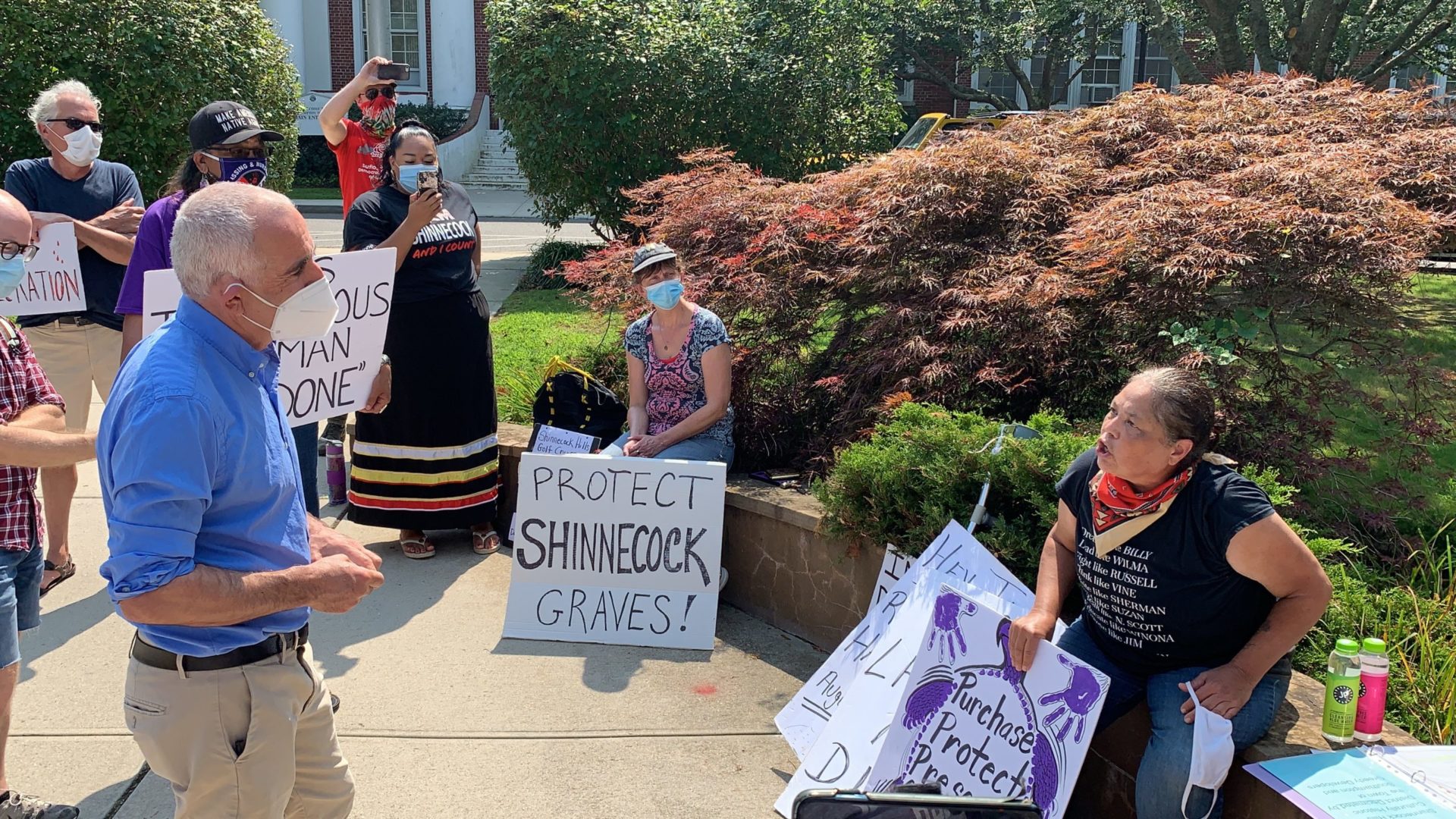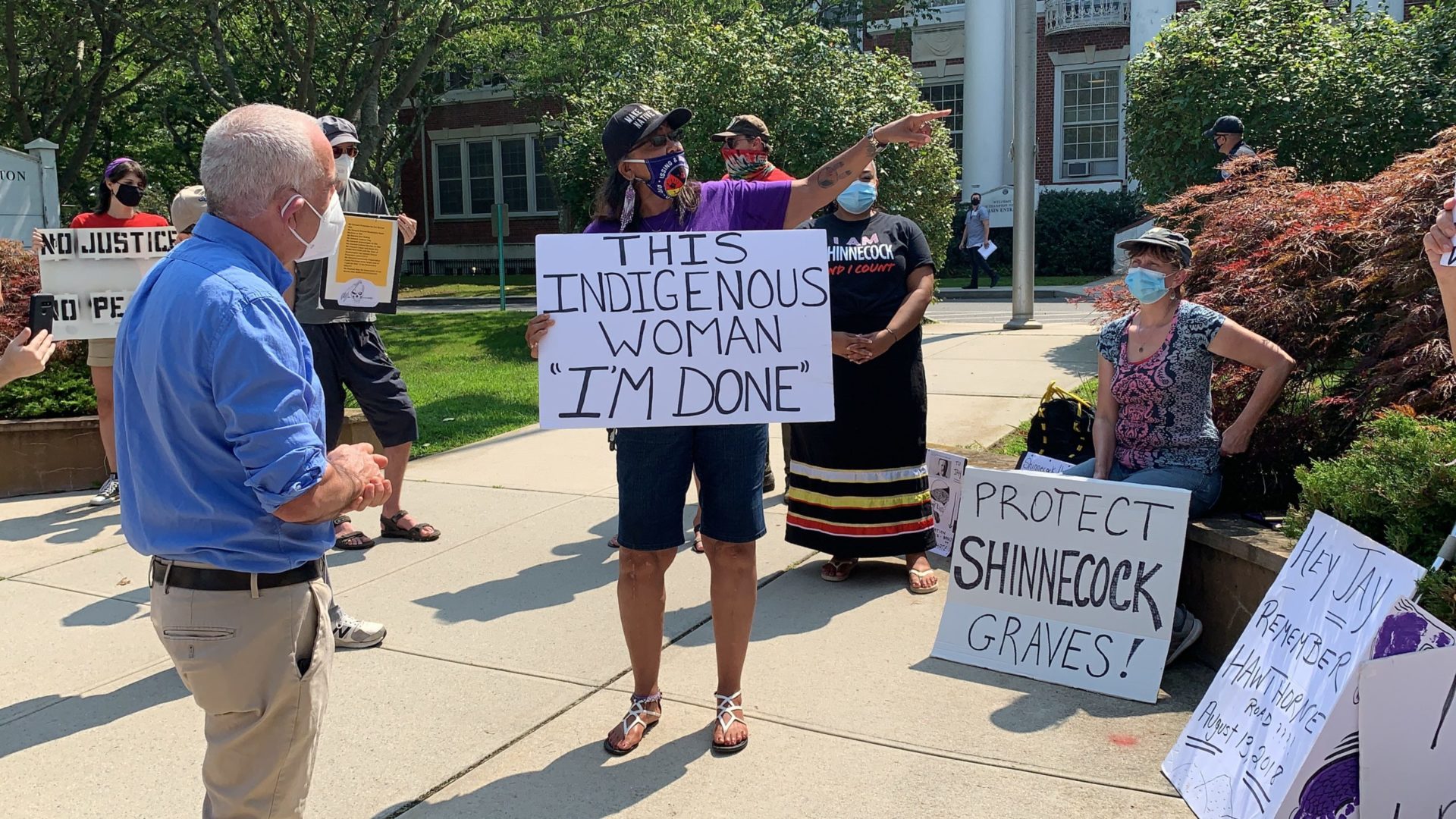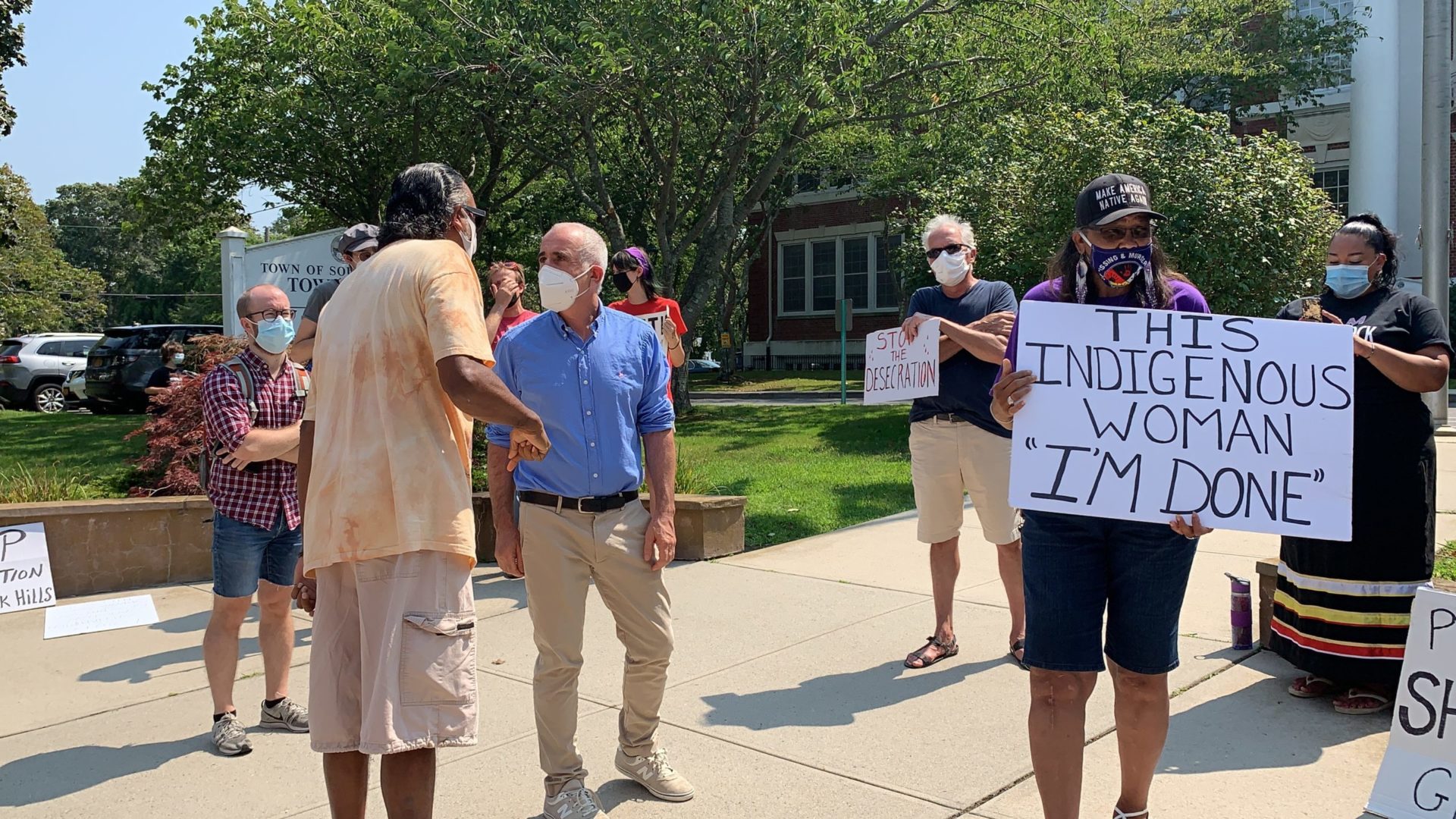Shinnecocks Confront Schneiderman Over Lack of Movement on Grave Protection Laws


Members of the Shinnecock Nation are frustrated that no action has been taken on proposed legislation and moratoriums on construction in certain areas of Shinnecock Hills.
Public hearings have been adjourned for months without a vote because, Southampton Town Supervisor Jay Schneiderman told a group of people who protested in front of Town Hall on Tuesday, the coronavirus won’t allow a large group to gather and voice their support or opposition for the proposals. Town meetings have been held via Zoom, and some people have appeared in person to speak on other issues.
“You let these millionaires build these mansions on stolen ground. You let them play golf on desecrated graves and you stand there? You have the nerve saying that you’ve done anything. You’ve done nothing but watch us suffer. That’s what you’ve done,” Rebecca Genia, a tribal members and longtime activist who has fought for protection of the Shinnecocks’ sacred burial grounds, yelled at Schneiderman.
“That’s a lie,” he said.
“We’re not going to tolerate it one more second,” Genia continued.
Schneiderman tried to explain that a public hearing scheduled for Tuesday night on the proposed pieces of legislation would be adjourned once again, until September 15 for a hearing that would be held over Zoom. The record would be kept open then for five to seven days for any written comment, but would be eligible for a vote by September 22.
A long sought-after Graves Protection Act was introduced in late February, which would establish a set of steps to be followed when possible human bones are unearthed during construction, which is not covered by any state law. Human remains have been found on several properties in the Shinnecock Hills area in recent years, and there was little the town could to do stop further building once they were removed. The town has been able to purchase several properties believed to be sacred burial ground with Community Preservation Fund money, but the Shinnecock Nation Protection Warrior Society, which organized Tuesday’s protest do not believe it is enough.
Moratoriums have also been proposed that would expand protection within the Sugar Loaf and Fort Hill areas, where remains have previously been discovered. In order to move forward during a six-month moratorium, homeowners would have to conduct archeological reviews to determine the presence or absence of cultural resources.
“Come via Zoom on September 15. Make yourselves heard,” he told the crowd of about 20. “I feel strongly about that. I’m passionate about this,” he said.
“You say that you feel so strongly for us and you were right with us,” said Jennifer E. Cuffee-Wilson, a Shinnecock elder who has been working for decades to see the unmarked graves protected. “Then why don’t you humble yourself? Humble yourself and say that everything that you have done meant nothing, absolutely nothing, because nothing has been done . . . If you would humble yourself enough to admit that you haven’t done anything that would be more respectful to us than anything in the world.”

Schneiderman, who struggled to speak without being interrupted, shook his head in disagreement.
Cuffee-Wilson also had a question for the supervisor about using the coronavirus pandemic as an excuse. “If this COVID thing was so bad then how come there was a concert with your band participating in a concert where there as hundreds of people who were there? Why was that okay?”
Schneiderman’s band was one of the opening acts for a Chainsmokers drive-in fundraiser concert in Bridgehampton last month that drew the ire of state officials when people gathered in front of the stage, ignoring social distancing. He had little to say in response.
Lauren Aiyana interrupted the heated discussion. “I’m not demonizing you. I just want to ask you heart to heart, human to human, do you hear pain? Do you hear what they’re saying in their voices that they want to feel that their ancestors are protected,” she asked.
“One hundred percent,” the supervisor replied.
“The frustration is how many times do bones have to come out of the ground without voices being heard?,” Aiyana continued. “What is not helpful to you is when you’re speaking so disrespectfully.”
Schneiderman said he had tried not to be disrespectful.
“You have to listen. Because otherwise people are going to get seriously upset at you and say you are liar,” she told him.
Soon Schneiderman excused himself from the group. “Thank you all for listening,” he said.

A man in the crowd, Kurt Kronemberg of Bay Shore, who identified himself as an activist, approached the supervisor as he began to leave.
“Whose land? Our land. Whose land? Our land. Whose land? Our land,” he said as he got very close to the supervisor and the two came face to face. “Please remember that.”
And with that Schneiderman walked back into Town Hall.
“I don’t believe a word that comes out of your ass!,” Wilson-Cuffee said, followed by claps from the crowd. “This isn’t something that is just happening ladies and gentleman. This has been going on since 1492. But with us it’s been going on since 1640, we have been dealing with the bulls***.”



